
Arigatou Gozaimasu Saudação Linda Borda Branca PNG , Arigatou Gozaimasu, Saudações, Fofa Imagem
There are two common ways of saying "thank you" formally: arigatou gozaimasu and arigatou gozaimashita. You would use the first phrase in a setting like an office when addressing a social superior. For example, if your boss brings you a cup of coffee or offers praise for a presentation you gave, you'd thank her by saying, arigatou gozaimasu.
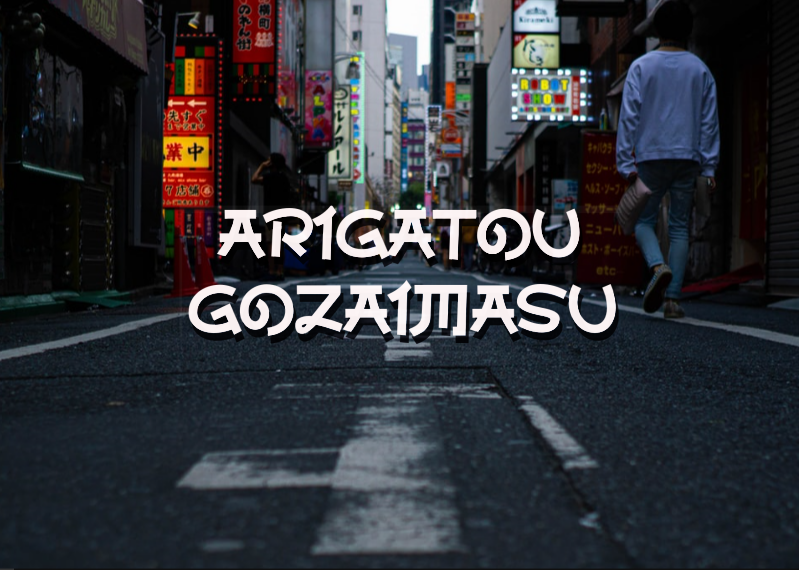
A Arigatou Gozaimasu Font FREE Download & Similar Fonts FontGet
arigatō gozaimasu (Japanese) Romanization arigatō gozaimasu. Romaji transcription of ありがとうございます; This is the meaning of ありがとうございます: ありがとうございます (Japanese) Origin & history Phrase consisting of ありがとう (arigatō, "thank you") + ございます (gozaimasu, "to be, it is", formal).

Thank You In Japanese Arigato Gozaimashita
"Arigato" (ありがとう) means "thank you" or "thanks" and is the most common way to thank close friends and family members in Japanese. The more formal and polite way to say "thank you" in Japanese is "arigato gozaimasu" (ありがとうございます). You can also start with the word "Domo" to say "Thank you very much".
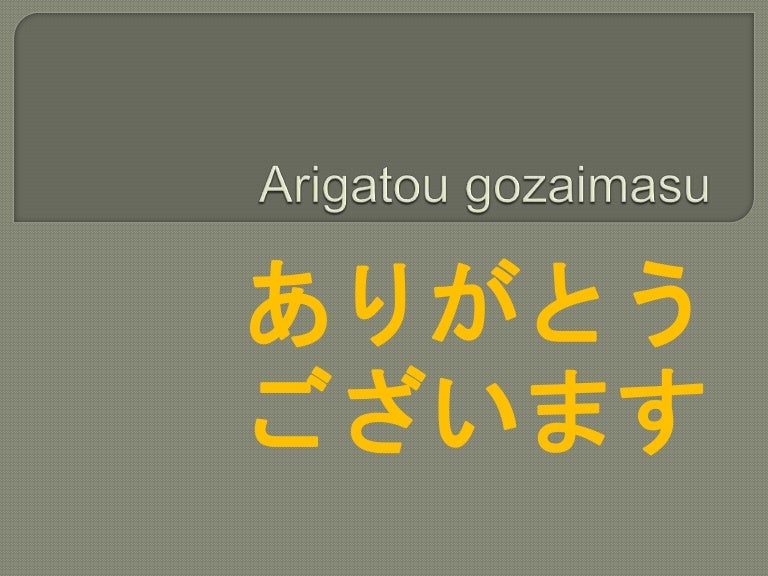
Arigatou gozaimasu
1 Arigatou gozaimasu Download Article "Arigatou gozaimasu" is a polite way to say "Thank you." You typically use this phrase in formal situations or with people you don't know. Say this to people who have a higher status than you, such as your boss, teacher, or anyone who appears to be older than you.

Arigatou and More How to Say Thank You in Japanese in All Types of Situations WeXpats Guide
Of course you do, it's a classic! The part that got stuck in everyone's heads for decades was the memorable line, " Domo arigato /arigatou, Mr. Roboto.". And, just in case the listener doesn't understand Japanese, they clarify the meaning afterward: "Thank you very much, Mr. Roboto.".

How to Pronounce Domo Arigato Gozaimasu どうもありがとうございます YouTube
Domo arigato (sometimes transcribed in "Doumo arigatou") is a way of saying "Thank you very much" in Japanese. The combination of Domo with Arigato has the effect of reinforcing the power of your thanks. Arigato gozaimasu, a formal thank you ありがとうございます。 Arigato gozaimasu. Thank you.

ใช้ Arigato gozaimasu และ Arigato gozaimashita ให้ถูกต้องยังไง? YouTube
The word " arigatou " is often seen written in the Japanese alphabet of hiragana (ありがとう), and many of us are probably also familiar with the longer " arigatou gozaimasu " (ありがとうございます), which is a more formal way to thank someone.
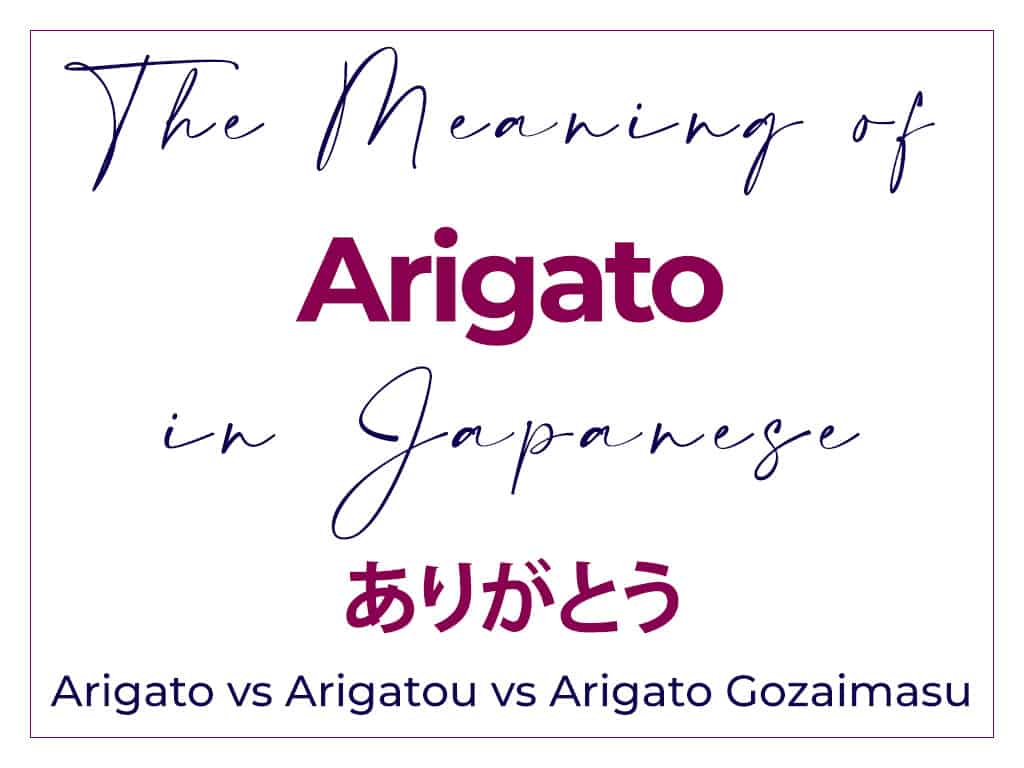
The Meaning of “Arigato” in Japanese (vs Arigato Gozaimasu) AlexRockinJapanese
1. Arigato gozaimasu! / Thank you! [arigato: gozaimas] This is a polite way of saying "thank you". While traveling in Japan, this is probably the most basic "thank you" phrase you'll be using. "Arigato" is for Friends "Arigato" is also a phrase that you will hear often.

Arigatou
Most often written in hiragana. May occasionally be seen spelled in kanji as 有り難う or 有難う, generally for more formal writing. The full form is ありがとうございます (arigatō gozaimasu). May also or alternatively be preceded by intensifier どうも (dōmo, "very"), 大変 (taihen, "very") or 本当に (hontō ni.
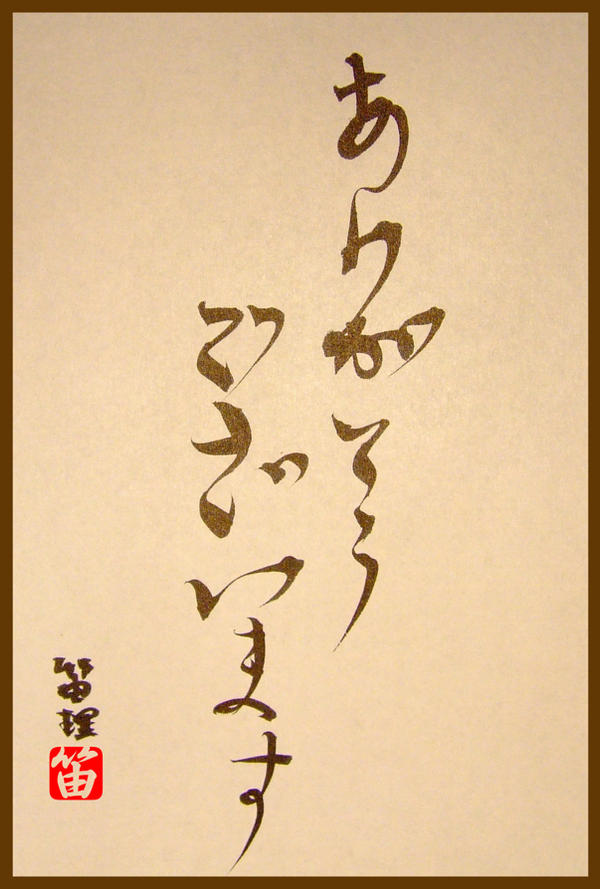
Arigatou Gozaimasu by Ferikun on DeviantArt
The origins of "arigatou". If you want to thank someone in Japanese, you would use the word "arigatou." It stems from "arigatashi" ("to be") and "katai" ("difficult"), so it literally means "being alive is hard." Using "arigatou" on its own is fine if you're in a situation where it's normal to use casual, informal language.

Arigatou Gozaimasu PNG, Vector, PSD, and Clipart With Transparent Background for Free Download
English translation of arigato gozaimasu - Translations, examples and discussions from LingQ. ×. not only arigato but arigato gozaimasu as well but do. じん つかう いい かた arigato gozaimasu is a formal way. may want to use arigato gozaimasu to people you meet.

What does arigato gozaimasu Translate to Google? YouTube
The proper way to say thank you in Japanese is arigatou gozaimasu. Here are the meaning and proper pronunciation of the phrase.

Japanese pronunciation Thank you ( formal) "ArigatouGozaimasu" YouTube
Another possibility is that the /g/ is being lenited into a voiced velar fricative /ɣ/, as is common between vowels in Japanese. (See "Handbook of the International Phonetic Association: Japanese" by Hideo Okada, or Wikipedia.)Further, since the second /g/ has rounded vowels (/o/) on both sides, it is likely to be somewhat rounded (/ɣʷ/ = /w̝/).
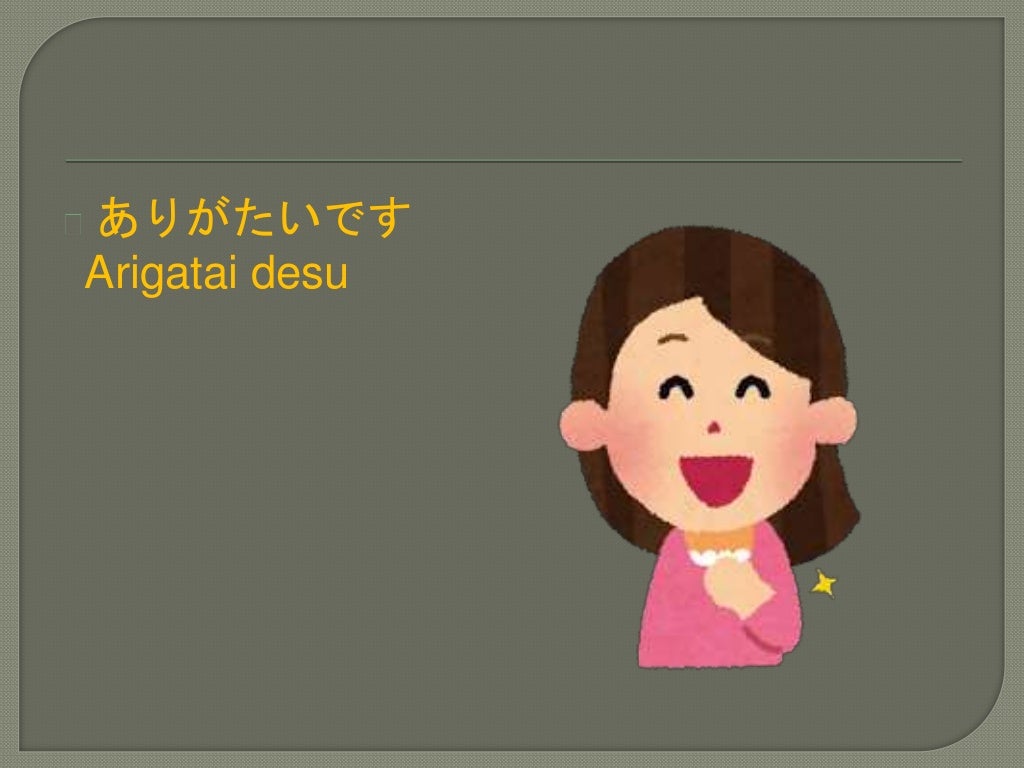
Arigatou gozaimasu
You can't say gozaimasu on its own, it wouldn't mean much of anything, but arigatou is a nice quick thanks for casual situations, and arigatou gozaimasu is an excellent way to politely express your thanks. 5. Hontoni arigatou gozaimasu - 本当に ありがとう ございます. Pronunciation: hohn-toh-nee ah-ree-gah-toh goh-zah-ee-mahs.

THANK YOU in Japanese arigatou gozaimasu vs arigatou gozaimashita YouTube
「ありがとう」 (Arigatou) in English may be likened to "thanks" or "thank you." It is commonly used with familiar people such as siblings, friends, or juniors. Shows the speaker's intimacy and close relationship with the listener. But it shouldn't be used with older people like parents or seniors or strangers who don't know each other.
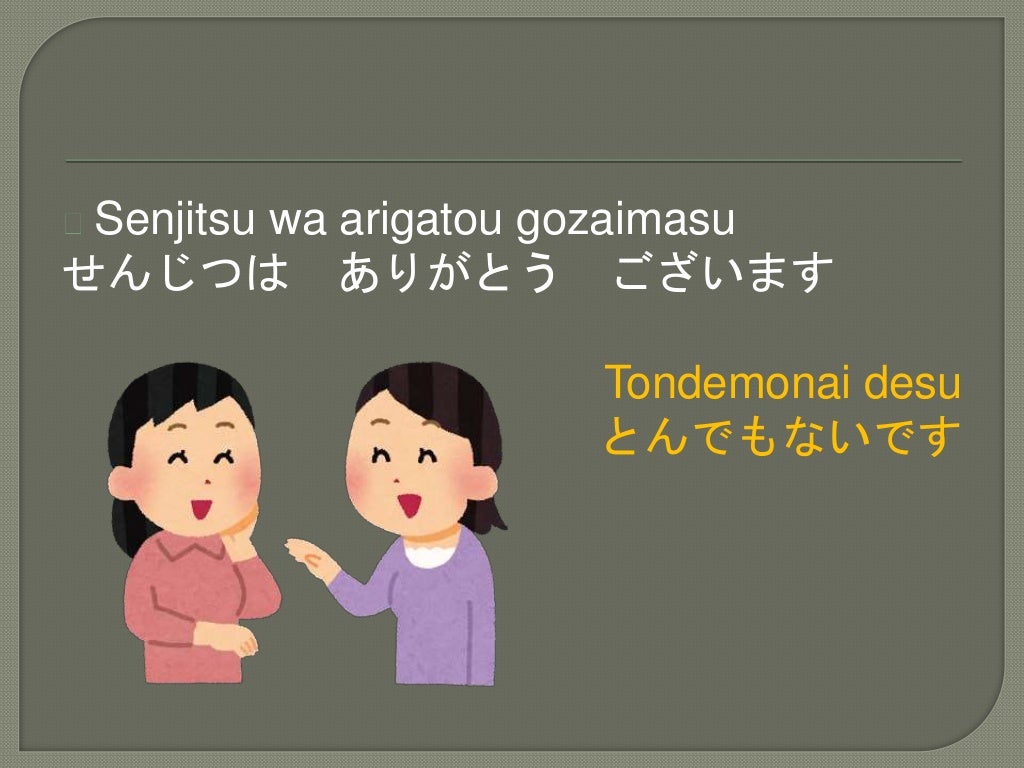
Arigatou gozaimasu
English translation: thank you very much 00:03 Apr 7, 2003 Japanese to English translations [Non-PRO] Japanese term or phrase:arigato gozaimasu A pen pal that I e-mail often closed his last letter with this term. Explanation:thank you very much (polite form) Selected response from: You do a most excellent job!! Arigato gozaimasu!!!